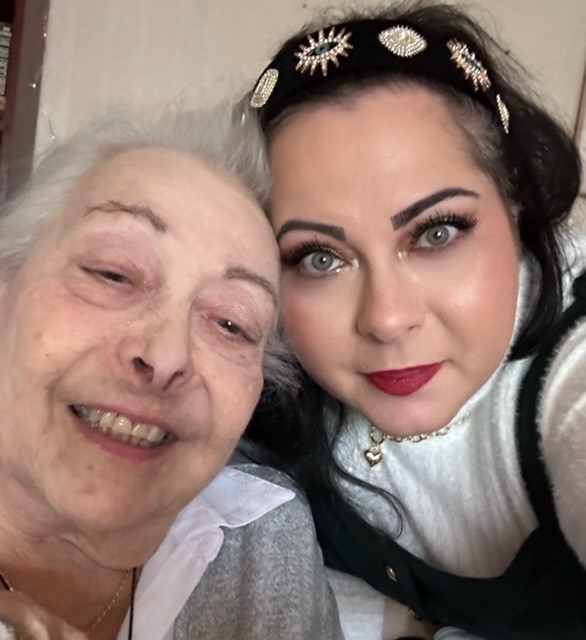Christie, 40, has been caring for her mother, Maria, ever since she was a child, and around twenty years ago she gave up work to care for her full-time.
“One of my earliest memories as a child was calling 999, because my mum had passed out. I was about four at the time”, said Christie.
Maria has numerous complex conditions, including Epilepsy, Type 2 Diabetes, mixed dementia, kidney and heart failure, and depression.
Christie does almost everything for her mother, from dealing with household chores and finances to handling medications and hospital appointments. She needs to constantly monitor Maria’s oxygen levels and heart rate and administer daily finger-prick tests.
“I’m not a trained nurse”, said Christie. “It’s almost like I’ve got her life in my hands. It's really stressful and I’m always on high alert. I can’t rest because I’m worried something is going to happen.”
Christie struggles with insomnia, as well as anxiety and panic attacks. She’s unable to take a break from her caring role, even when her own chronic health conditions are causing her pain.
“I get flare-ups every day, but I have to push through the pain, or mum won’t get her food or medication”, she said.
She has even had to postpone surgeries because she can’t afford to get care cover, which has led to her health deteriorating further.
Her mental health has also worsened, and Christie often feels isolated and depressed. She has gone months at a time without leaving the house, except for medical appointments.
“People think that if you’re with someone every day, then you’re with them, but I don’t have any quality time with her as a daughter”, said Christie. “There are times when I need my mum, and I can’t rely on her in that way.”
“Your friends do disappear”, she added. “Mine are all going on holidays, getting married – we live in completely different worlds.”
Christie would like to see more support and funding for carers in her local area. “There need to be a lot more carer day centres”, she explained. “We could meet with other carers and have a coffee and a chat; they could do day trips and help me find care cover.”
She feels that the Government need to provide more funding for health and social care, and that the NHS could be more understanding of needs of carers.
“I know that the funding is so tight”, she explained, but if community nurses were “more involved and able to stay with patients for longer”, it would help her feel better supported as a carer. She added that home visits from GPs for carers would also make a huge difference.
“Becoming a carer for a loved one could happen to anyone. It could happen to politicians. They should think about how that would affect their lives, and the support they would want for themselves and their loved ones”, said Christie.
“And if the Government and NHS don’t make sufficient changes to protect carers’ health and wellbeing, unpaid carers will need carers. That will cost the government even more money in the long run.”

Christie and her mum, Maria.


